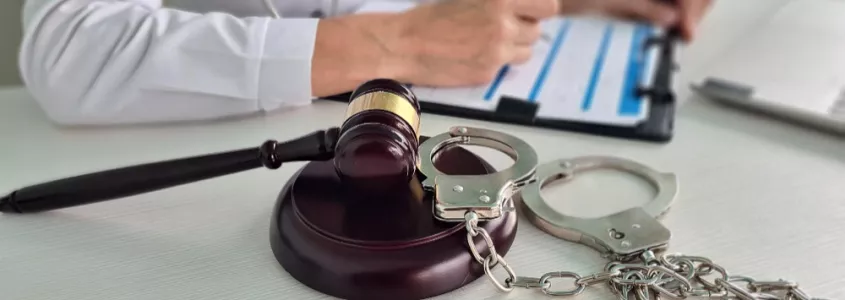
Table of contents
Public health is a judicial asset that refers to the defence of collective well-being, i.e., of society as a whole. In fact, it is protected in Article 43.2 of the Spanish Constitution, which establishes the obligation of the public authorities to establish and defend it by means of "provisional actions" and "the services and benefits that are necessary".
This is the fundamental reason why the Penal Code includes crimes against public health. But what exactly is meant by these offences and what are the penalties? We will discuss all this and much more in depth in this article.
What is an offence against public health?
The crime against public health in the Penal Code is typified in Chapter III of Title XVIII. Its purpose is to preserve this legal asset and punish anyone who violates it.
However, what types of offences against public health does the Criminal Code include? In this regard, a distinction must be made between two main variants, which may or may not be related to each other.
Trade-related public health offences
These offences are defined in Articles 359 and 369 of the Criminal Code. Specifically, this legal text refers to:
- The manufacture of any substance toxic or harmful to health. The penalties for this type of offence against public health range from 6 months to 3 years imprisonment accompanied by a fine of between 6 and 12 months and disqualification of between 6 months and 2 years.
- The creation of medicines without explicit authorisation. The penalties are the same as described above, although the disqualification may be extended to 3 years.
- The sale of medicines without authorisation, whether for human or veterinary use. In this case, the custodial sentences range from 6 months to 4 years. Fines of 6 to 18 months and disqualifications of between 1 and 3 years are also envisaged.
- The production of false documentation relating to medicinal products or any other type of medical device. This offence carries a prison sentence of 6 months to 2 years and fines of 6 to 12 months. In addition, it can lead to disqualifications of up to 12 months.
- Fraud in the sale of foodstuffs. For example, by attributing properties to foodstuffs that they do not possess as a sales technique. Here, prison sentences of 1 to 4 years are envisaged for producers as well as for distributors and traders. Fines range from 6 to 12 months and disqualifications from 6 to 12 months.
- Doping in sport. Punishable by 6 to 24 months imprisonment, as well as fines of 6 to 18 months and disqualification for 2 to 5 years.
Crime against public health by drug trafficking
Earlier we spoke of toxic substances harmful to health, such as narcotics and other types of illegal drugs. In this respect, the Criminal Code criminalises their manufacture and sale. It even prohibits the trafficking of precursor substances necessary for their production. This is regulated in Articles 370-378.
It should be emphasised that some countries define acts of spreading disease as a criminal offence. This is the case, for example, in Mexico or Argentina. However, Spain is not among them. An issue that was particularly controversial during the worst phases of the COVID-19 pandemic.
Violating public health through drug trafficking carries even harsher penalties. For example, the cultivation, processing and sale of narcotic substances will be punishable by prison sentences of between 3 and 6 years, as well as fines equivalent to the value of the seized drugs multiplied by three.
The penalties for the manufacture, distribution and sale of precursors under the UN Convention are the same as those described above.
What happens if a public health offence is committed without a previous conviction?
When sentencing for an offence against public health, the judge may take into consideration some mitigating factors. This would be the case, for example, of the absence of a criminal record on the part of the accused, the intention he/she had when committing the offence and the quantity of drugs seized.
In such cases, the judge may reduce the sentence to 6-12 months' imprisonment and set the fine at twice the value of the seized drugs.
In any case, it is essential to have the services of a criminal lawyer specialised in crimes against public health. Only in this way will it be possible to defend the rights of the accused and opt for the lowest possible sentence

"Anywhere in Spain"
With our online appointment system you will have immediate advice without the need for face-to-face visits or travel.
One of our lawyers specialized in your area of interest will contact you to formalize an appointment and make your consultation by video call.

Add new comment